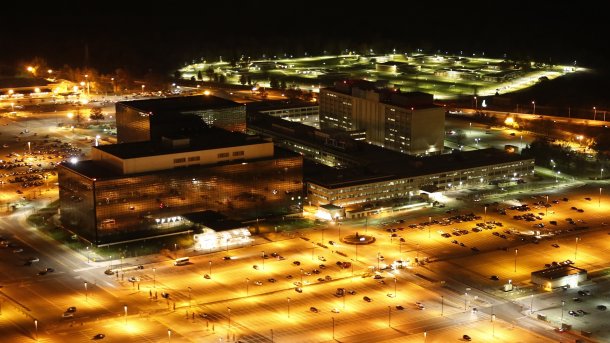US Senate approves increased mass surveillance despite data protection concerns
US senators have extended Section 702 of the Foreign Intelligence Surveillance Act (FISA) and added a "Stasi paragraph" for NSA spying.

The headquarters of the NSA in Fort Meade (Maryland).
(Bild: Trevor Paglen)
After the House of Representatives, the second chamber of the US Congress, the Senate, also voted by a large majority on Saturday morning shortly after midnight to extend the controversial Section 702 of the Foreign Intelligence Surveillance Act (FISA) for a further two years and to significantly drill down on parts of it. 60 senators were in favor of the corresponding "Reforming Intelligence and Securing America Act" (RISAA), 34 against. The key article of the Foreign Intelligence Surveillance Act, which has thus been extended, allows security agencies such as the NSA and the FBI to request emails and other data from national companies, offices and institutions such as telecommunications providers or libraries without a court order.
In 2021 alone, the FBI searched data up to 3.4 million times based on Section 702 to inspect the communications of US citizens. These surveillance measures repeatedly lead to errors and breaches of authority. "The searches targeted American protesters, political campaign donors and even people who had simply reported crimes to the FBI," criticized Senator Ron Wyden of the Democrats, who wanted to bring down the initiative. The abuses were "extensive and well documented". Wyden tabled an amendment to remove a clause added in the House of Representatives that would require more companies to comply with government surveillance requests in future. His attempt failed by 34 votes to 58.
Spying becomes mandatory for significantly more companies
The MPs' amendment expands the definition of "providers of electronic communications services". This now also refers to service providers who merely provide access to devices such as routers, servers or radio equipment on which communications are stored or transmitted. This means that significantly more companies could be subject to FISA 702 requests in future, such as commercial landlords, cloud providers and hosters. Whistleblower Edward Snowden complained in advance that the NSA was on the verge of "taking over the internet" with this move. There was even talk of a "Stasi paragraph". On the other hand, the number of authorized accesses is to be reduced from around 10,000 to 550 security officers. A subsequent review of all requests and stricter sanctions in the event of misuse are also planned.
The pressure on the senators not to block the project was high. Strictly speaking, the spying program was due to expire at midnight. The government had previously stated that its authority to collect intelligence would remain operational for at least another year, as the Foreign Intelligence Surveillance Court (FISC) had already approved this. However, this is no substitute for congressional approval, the statement continued, especially as the companies concerned could stop cooperating with the authorities. The majority leader in the Senate, Chuck Schumer of the Democrats, was therefore relieved by the approval. Despite the setback, his party colleague Wyden does not want to give up fighting for a real amendment to the surveillance program. But he knows: "Those of us who believe that freedom and security are not mutually exclusive have a lot of work to do." US President Joe Biden still has to sign the RISAA, which is considered a formality.
(nie)